 Being an Atheist is often promoted by its adherents as an enlightened and liberating approach to life in that it’s unhindered by “ancient texts” and the restrictions that those religious paradigms attach to their followers.
Being an Atheist is often promoted by its adherents as an enlightened and liberating approach to life in that it’s unhindered by “ancient texts” and the restrictions that those religious paradigms attach to their followers.
But strip away liturgy and dogma and religion is whatever a person uses to answer four basic questions:
• How did life begin? (Origin)
• How am I supposed to be behave (Morality)
• What’s the point of my existence? (Meaning)
• Is there life after death? (Destiny)
How you answer those questions is captured in your religious convictions. From that standpoint, the atheist is just as “religious” as they’re Christian counterpart, the only difference is that they choose to answer those questions according to a completely humanistic paradigm, which in some ways requires more faith than the faith deployed by a born again believer.
Here’s the thing: Hiding beneath the atheist’s indignant refusal to accept anything other than what can be proven or understood, is a desperate attempt to make a world based on mathematical absurdities, philosophical dead ends and indefinite moral boundaries sound fulfilling.
When you dismiss God from the equation, all that you have left to explain and legitimize your existence is both temporary and relative. You are a lucky accident hoping that the next level of success and gratification translates to a lasting confidence that you matter and your life has meaning. The problem is, regardless of how noble or stimulating your experiences may be, if everything is relative, than you yourself are relative and everything is inconclusive.
In short, you don’t have a foundation, only an imaginary paradigm rooted in a self absorbed mindset that has no chance of being validated because of the way it attempts to make itself its own philosophical bottom line.
And not only is it an epic fail from a logical standpoint, the end result of a resolve to establish one’s self as their own god is an empty and altogether pointless existence compared to the Compassion and Intentional Design represented by the Message of the Gospel and the Power of God.
Let’s take a look…
The Meaning of Life
As far as the “meaning of life” is concerned, according to the atheist, one’s purpose and significance is derived from the pleasant things in their life.
David Niose is an attorney who has served as president of two Washington-based humanist advocacy groups, the American Humanist Association and the Secular Coalition for America. He is author of Nonbeliever Nation: The Rise of Secular Americans and Fighting Back the Right: Reclaiming America from the Attack on Reason. In an article written for Psychology Today, he elaborates on how both the godly and the godless can find rich meaning in their lives. He says:
Having rejected myth and ancient texts as authorities for defining life’s purpose, nonbelievers get meaning and joy from family, friends, loved ones, nature, art and music, and their work.
But life isn’t always pleasant. Julian Baggini takes note of this in an article entitled, “Yes, Life Without God Can be Bleak. Atheism is About Facing up to That.” It’s part of a series of articles featured in The Guardian designed to, “…redraw the battle lines in the God wars and establish a new heathen manifesto.” He says:
Given how the atheist stereotype has been one of the dark, brooding existentialist gripped by the angst of a purposeless universe, this is understandable. But frankly, I think we’ve massively overcompensated, and in doing so we’ve blurred an important distinction. Atheists should point out that life without God can be meaningful, moral and happy. But that’s “can” not “is” or even “should usually be.” And that means it can just as easily be meaningless, nihilistic and miserable.
So, whether it’s joy or despair, for the atheist, purpose and significance is derived from however you choose to respond to the circumstances you either manufacture or those that simply happen.
The problem, though, is that there is no point. Pleasure and joy in and of themselves are sensations and not destinations.
First of all, deriving your sense of purpose from the amount of pleasure you experience in whatever areas you engage requires an ever increasing degree of stimulation to keep you convinced that you have value.
Secondly, even if you want to say that you’re getting pleasure from being philanthropic and giving sacrificially, you can’t posit your definition of what constitutes a noble purpose as something that means anything because if there is no such thing as an Absolute, then there is no Standard by which you can measure your life to prove that you have any real merit. And however you want to insist that “society” or “civilized people” will appreciate your contribution, the fact is you have value only for as long as you’re surrounded by people who agree with your philosophical manifesto.
On the other hand…
You were created by a loving God with a Purpose that resonates as both meaningful and eternal. You don’t concern yourself with “positive thinking,” instead you engage in “profound thinking.” With that approach, you’re not simply being selective in what you want to think about, instead you focus on the One Who your circumstances answer to knowing that “all things work together for the good of those who love Him. (Rom 8:28)”
Morals
As a Christian, you base your morals on the Absolutes as they’re communicated in Scripture. An atheist, on the other hand, believes that ethics and morals flow from a natural desire to thrive both as individuals and in the context of community.
In his essay, “Ethics Without God,” Frank Zindler, former President and current Board Member of American Atheists, explains the difference between “enlightened self-interest” and “un-enlightened self-interest.”
The principle of “enlightened self-interest” is an excellent first approximation to an ethical principle which is both consistent with what we know of human nature and is relevant to the problems of life in a complex society. Let us examine this principle.
First we must distinguish between “enlightened” and “unenlightened” self-interest. Let’s take an extreme example for illustration. Suppose you lived a totally selfish life of immediate gratification of every desire. Suppose that whenever someone else had something you wanted, you took it for yourself.
It wouldn’t be long at all before everyone would be up in arms against you, and you would have to spend all your waking hours fending off reprisals. Depending upon how outrageous your activity had been, you might very well lose your life in an orgy of neighborly revenge. The life of total but unenlightened self-interest might be exciting and pleasant as long as it lasts – but it is not likely to last long.
The person who practices “enlightened” self-interest, by contrast, is the person whose behavioral strategy simultaneously maximizes both the intensity and duration of personal gratification. An enlightened strategy will be one which, when practiced over a long span of time, will generate ever greater amounts and varieties of pleasures and satisfactions.
He goes on to reinforce the idea that our personal approach to ethics will inevitably be driven by our natural regard for a healthy community:
Because we have the nervous systems of social animals, we are generally happier in the company of our fellow creatures than alone. Because we are emotionally suggestible, as we practice enlightened self-interest we usually will be wise to choose behaviors which will make others happy and willing to cooperate and accept us – for their happiness will reflect back upon us and intensify our own happiness. On the other hand, actions which harm others and make them unhappy – even if they do not trigger overt retaliation which decreases our happiness – will create an emotional milieu which, because of our suggestibility, will make us less happy.
In short, the person who does not believe in God sees morality as an enlightened application of those behaviors that are most beneficial to himself and his neighbors.
Creation
Typically, atheists tend to believe in Evolution as being the driving force behind the initiation of the universe and humanity.
In a speech entitled, “Evolution and Atheism: Best friends Forever,” given by Jerry Coyne at FFRF‘s 39th annual convention in Pittsburgh on October 8th, 2017, he said this:
Here’s my thesis for the evening: The fact of evolution is not only inherently atheistic, it is inherently anti-theistic. It goes against the notion that there is a god. Accepting evolution and science tends to promote the acceptance of atheism. Now, it doesn’t always, of course. There are many religious people who accept evolution. I would say they’re guilty of cognitive dissonance, or at least of some kind of watery deism.
The path from going to an evolutionary biologist to an atheist is pretty straightforward. You write a book on evolution with the indubitable facts showing that it has to be true, as true as the existence of gravity or neutrons, and then you realize that half of America is not going to buy it no matter what you say. Their minds cannot be changed; their eyes are blinkered.
Mutations are random, and where there is order, it can be explained by an organism’s need to adapt to it’s environment. In other words, according to the atheist, God is completely unnecessary, as far as being able to explain the origin of the universe and the precise organization that characterizes both organisms and the inorganic material found in nature. While there are many brilliant minds, both throughout history and in today’s scientific community who disagree, according to some atheists, the science that backs up the claim that life is the result of evolution is conclusive and isn’t questioned by any rationale human being.
Life After Death
While most religions advocate the idea of life after death, the atheist does not. In their spiritual universe, once you take your last breath, you simply cease to exist. The well known physicist, Stephen Hawking, captures that notion in a 2011 interview he did with The Guardian.
“I regard the brain as a computer which will stop working when its components fail,” he told the Guardian. “There is no heaven or afterlife for broken down computers; that is a fairy story for people afraid of the dark.”
John Polkinghorne was professor of mathematical physics at the University of Cambridge from 1968 to 1979. He is among those who looked at the same data as Jerry Coyne and came to the exact opposite conclusion.
In addition, here’s a partial list of leading scientists where were believers: Copernicus, Kepler, Galileo, Brahe, Descrates, Bolye, Newton, Leibiz, Gassendi, Pascal, Mersenne, Cuvier, Harvey, Dalton, Faraday, Herschel, Joule, Lyell, Lavoisier, Priestley, Levin, Ohm, Ampere, Steno, Pasteur, Maxwell, Palnck, Mendel. A good number of these scientists were clergymen. Gassendi and Mersenne were priests. So was Georges Lemaitre, the Belgian astronomer who first proposed the “Big Bang” theory of the universe. Mendel, whose discovery of the principles of heredity would provide vital support for the theory of evolution, spent his entire life as a monk in an Augustinian monastery. Where would science be without these men? Some were Protestant and some were Catholic, but all saw their scientific vocation in distinctively Christian terms.1
John Polkinghorne himself resigned his chair to study for the priesthood, becoming an ordained Anglican priest in 1982. He served as the president of Queens’ College, Cambridge, from 1988 until 1996.
You Have Nothing to Start With, So…
Part of what makes the mindset of the atheist so nonsensical is the way in which they assume the existence of the laws and materials necessary to create life. Unless you can explain the origin of the intangibles that govern the manner in which the physical world operates, you’re not explaining how all of these things came to be anymore than describing traffic patterns explains the origin of an automobile.
In Mathematics you have what is called the Null Set. It’s a symbol that represents a value that doesn’t exist. For example, Let A = {x : 9 < x < 10, x is a natural number}. There is no natural number that exists between 9 and 10.
To satisfactorily explain the origin of the universe, your starting point must be the cosmological equivalent to the Null Set as far as having neither matter nor math. In other words, you have neither raw materials nor ordered systems within which these assumed materials can interact with one another.
You have nothing to start with.
So, you can’t have a “Big Bang,” because you have no Laws of Physics that would dictate an explosion nor do you have any materials that could combine in a way that could potentially combust.
And however someone might want to steer clear of a Divine Personality (as opposed to a stoic machine) lurking behind the invention of all that’s necessary to “create,” this same “force” must also be capable of creating beauty, love, peace and joy – things that exist outside the realm of material things.
It’s here where the futility of an atheist’s viewpoint becomes obvious. When the material precision of the created order coupled with the intangible realities of the human experience are fully appreciated, the mathematical impossibilities are so extensive, what is thrust upon the public as enlightened sophistication is revealed as a self absorbed desperation on the part of the atheist to declare himself as his own absolute.
The fact is, you have any one of a number of brilliant and accomplished minds who believe that God, not Random Selection, is the impetus behind the universe and all of life as we know it (see sidebar). So, for Jerry Coyne and those who think like him to insist that Evolution is a foregone conclusion, they’re either oblivious or indifferent to any platform save their own.
You Are Your Own Bottom Line
While all religions agree that humanity is flawed, only Christianity posits the idea that man can’t make things right on his own. So, whether a person defines themselves as a Muslim or an atheist, both are subscribing to a “religion” that positions man as his own spiritual remedy and with that choice comes a morality that’s used to advance a person’s spiritual status in the eyes of their chosen deity. With Islam, you’re abiding by the morals outline in the Q’uaran to please Allah. As a Buddhist, your morals are aligned with whatever best achieves Nirvana. As an atheist, your morals are crafted in a manner that best satisfy whatever requirements you have prescribed for yourself.
Those religions that direct the attention of their followers to either a supernatural personality or a heightened sense of well being generally require some kind of discipline or self-denial in that you are answering to someone or something other than yourself. An atheist, on the other hand, answers only to himself. That doesn’t mean they are, by default, depraved. What it does mean is that theirs is the only signature required on the hypothetical document that outlines what is wrong versus what is right. And though they may insist that their morals are configured so as to benefit society, it is still their definition of what is beneficial that dictates their moral code.
In other words, as an atheist you are your own bottom line. And however that perspective is cloaked in noble sounding verbiage, it is still a scenario where the Absolute of God is replaced with the absolute of one’s self.
What’s the Point
From the perspective of an atheist, you live however you choose. There is no transcendent moral standard that everyone is obligated to conform to. Any “good” that one does is purely subjective and whatever “unenlightened self-interest” you may be guilty of, the repercussions, while they may be unfortunate, are not errors that you are to be held accountable for by some eternal scorekeeper.
Thomas Jefferson held that the notion of an eternal source of accountability provided an effective motivation to do good and avoid evil.
A firm believer in man’s free will, he [Thomas Jefferson] thought that good works were the way to salvation and that rewards and punishments for actions on earth were “an important incentive” for people to act ethically.2
But then again, what is “good” if there is no Absolute basis for it? And for that matter, what is “evil?”
If the only absolute the atheist is willing to acknowledge is the absolute of themselves, then everything about their existence is conditioned according to what they’re willing to observe, experience and accept. Not only are they their own moral bottom line, but they themselves become the standard by which the entire universe is measured. Moreover, if their argument is to have any validity, then every member of the human race needs to be able to discriminate however their perspective dictates as well. So, the end result is a never ending tension between the way in which one person defines something as morally substantive and another individual can look at the same thing and dismiss it as either inconsequential or even sinister.
In short, there is no “meaning,” only the extent to which one’s appetites can be momentarily gratified. And even then, if the only object is to punctuate the tedium of one’s existence with as many temporary stimulations as possible, at what juncture does it become unavoidable to ask, “What’s the point?”
Conclusion
There’s really no such thing as an atheist. If “god” is whatever you use to answer the philosophical questions that require a response from every human being as far as one’s origin, life after death, right versus wrong and what’s the point of a person’s existence, then the atheist is simply declaring “god” to be the one that stares back at them in the mirror every morning.
Now…
• the individual can claim themselves to be a product of Natural Selection and therefore owes God no acknowledgement for their birth or existence
• the individual can define their own morality and completely ignore God’s commands
• the individual can view life as nothing more than a dash between two dates and deny there’s a Divine Purpose to be lived out and enjoyed
• the individual can deny any accountability to a Higher Power other than themselves and death is now nothing more than a last gasp with no reward or chastisement to consider afterwards
But it’s not a liberation, it’s an incarceration. The atheist has fastened a philosophical ball and chain to their ankle by insisting that anything which can’t be fit on the dinner plate of the human intellect simply doesn’t belong on the table.
A person may think that they don’t need God, but in the absence of God all they have is themselves. Not only is that a poor substitute…
…it’s a poison that restricts a man to fulfillments that can’t last, accomplishments that can be undone and a death that can only be mourned.
For further reading…
Christianity – It Cannot be Believed by a Thinking Person
G-R-A-V-I-T-Y
1. “What’s So Great About Christianity”, Dinesh D’Souza, Tyndale House Publishers, Carol Stream, Illinois, 2007, p99
2. “Jefferson’s Religious Beliefs”, monticello.org, https://www.monticello.org/site/research-and-collections/jeffersons-religious-beliefs, accessed December 31, 2020
 What do you do? You’re a spectator, at least from the standpoint of doing your duty, but then you just have to watch your elected officials either do their job or simply make excuses. You pray, but to what end? Do you insist that God come through according to your preferences, or do you walk the line between Matthew 7:7 and Amos 2:4-5 and acknowledge that God may have something different in mind?
What do you do? You’re a spectator, at least from the standpoint of doing your duty, but then you just have to watch your elected officials either do their job or simply make excuses. You pray, but to what end? Do you insist that God come through according to your preferences, or do you walk the line between Matthew 7:7 and Amos 2:4-5 and acknowledge that God may have something different in mind?

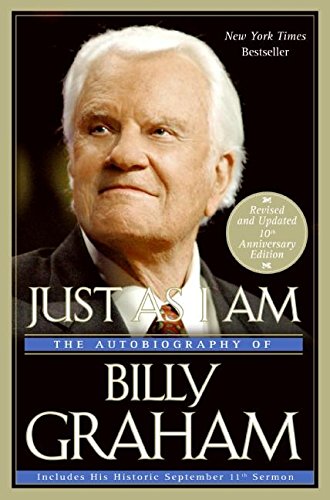
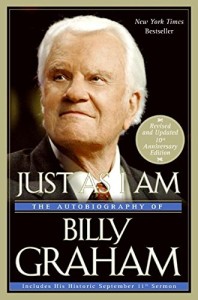
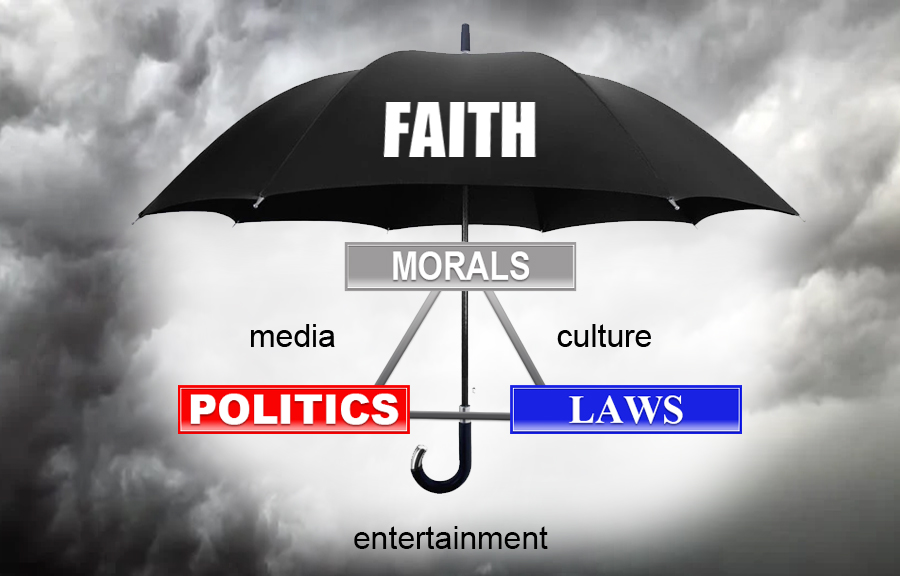
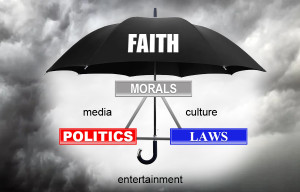








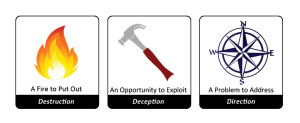





You must be logged in to post a comment.